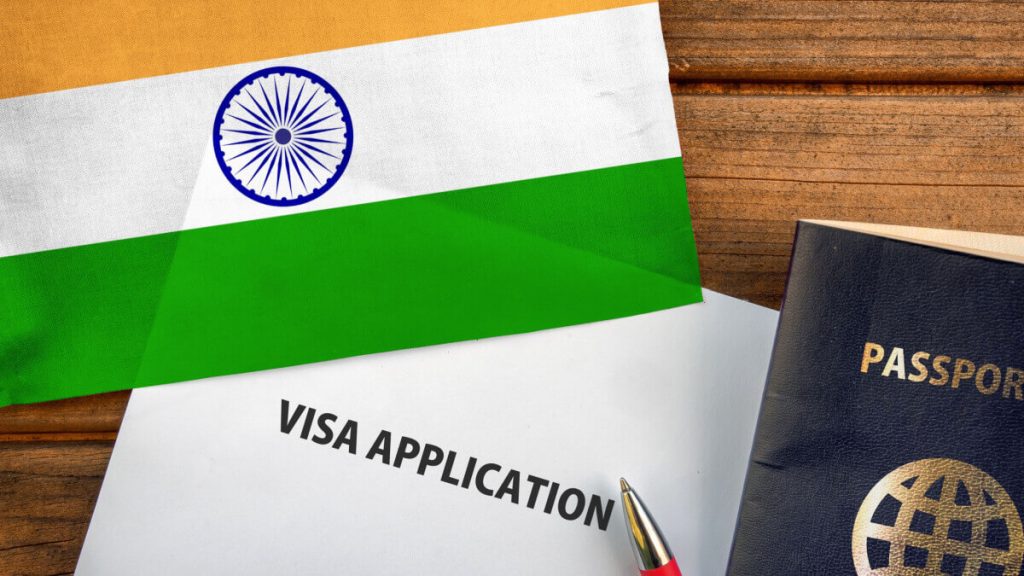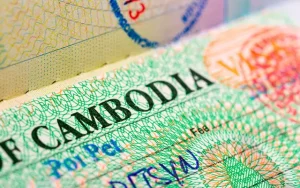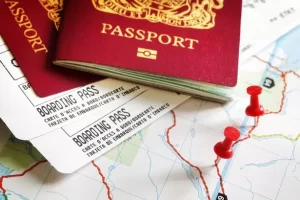
Are you a German citizen with an insatiable wanderlust for the vibrant and diverse landscapes of India? Dreaming of immersing yourself in the rich cultural tapestry, culinary delights, and ancient wonders that this mesmerizing country has to offer? Look no further! In this blog post, we will delve into the fascinating world of Indian visas specifically designed for German citizens. Join us as we unravel the countless benefits and unveil the limitations that come hand-in-hand with embarking on this awe-inspiring journey. Whether you’re seeking spiritual enlightenment or simply yearning to explore new horizons, fasten your seatbelts as we navigate through a treasure trove of information awaiting adventurous souls like yours! Indian Visa for German Citizens
Introduction to Indian Visa for German Citizens
India is a popular destination for travelers from all over the world, including Germany. With its rich culture, diverse landscapes, and vibrant cities, it is no surprise that many Germans are drawn to this country. However, as with any international travel, obtaining the necessary visa is an essential step in planning your trip to India.
In this section, we will provide a comprehensive introduction to the Indian visa process for German citizens. We will cover everything you need to know about applying for a visa, what types are available, and any limitations or restrictions that may apply.
Types of Visas Available
Before diving into the specifics of obtaining an Indian visa as a German citizen, it’s important to understand the different types of visas that are available. The type of visa you need will depend on the purpose and duration of your stay in India.
Tourist Visa:
This type of visa is suitable for those who plan on traveling to India for leisure or recreational purposes. It allows visitors to stay in the country for up to 180 days at a time and can be obtained either through e-visa (for shorter stays) or by visiting an Indian embassy or consulate. Indian Visa for Canadian Citizens
Business Visa:
For those traveling to India on business-related matters such as meetings, conferences, or trade fairs, a business visa is required. This type of visa allows multiple entries into India and can be valid for up to five years depending on your specific circumstances.
Business Opportunities
India is a rapidly growing economy, with a population of over 1.3 billion and a thriving business environment. For German citizens, obtaining an Indian visa opens doors to numerous business opportunities in various sectors such as technology, manufacturing, agriculture, and more.
One of the major advantages of having an Indian visa for German citizens is the ease of doing business in India. In recent years, the Indian government has implemented several policies and reforms to attract foreign investments and make it easier for businesses to operate in the country. This has resulted in India climbing up the ranks in the World Bank’s Ease of Doing Business Index, making it more attractive for foreign companies to invest and do business in India.
Another significant benefit is access to one of the largest consumer markets in the world. With its massive population and growing middle class, India presents a huge market potential for international businesses looking to expand their reach. The demand for quality products and services from foreign companies is constantly increasing, providing ample opportunities for German businesses to establish themselves in India.
Moreover, being a part of the global supply chain has become crucial for businesses today. With its well-developed infrastructure and skilled workforce, India offers excellent opportunities for German companies looking to set up manufacturing or outsourcing operations. Additionally, with its strong presence in industries such as pharmaceuticals, automotive, IT services, renewable energy, etc., there are numerous possibilities for collaboration between Indian and German companies.
Spiritual and Wellness Tourism
Spiritual and wellness tourism in India has been gaining popularity among travelers, including German citizens. This form of tourism focuses on promoting inner peace, rejuvenation, and overall well-being through experiencing different spiritual practices and activities.
India is known as the birthplace of several world religions such as Hinduism, Buddhism, Jainism, and Sikhism. These ancient teachings have been passed down for centuries and are deeply ingrained in the culture and daily lives of Indians. This makes India a popular destination for those seeking spiritual enlightenment or looking to connect with their inner selves.
One of the main attractions of spiritual tourism in India is the presence of numerous ashrams (spiritual retreat centers) scattered across the country. These ashrams offer various programs such as yoga, meditation, Ayurvedic treatments, and vegetarian meals to help visitors detoxify their mind and body. Many famous Indian gurus also reside in these ashrams where they teach ancient spiritual practices to individuals from all over the world.
In addition to ashrams, there are also several holy sites that hold significance for different religions. For example, Varanasi is considered one of the holiest cities for Hindus due to its location on the banks of river Ganges. The city attracts pilgrims who come to take a dip in the sacred river or perform rituals at its ghats (riverfront steps). Similarly, Bodh Gaya is a significant site for Buddhists as it is believed to be the place where Buddha attained enlightenment under a Bodhi tree.
Limitations of an Indian Visa for German Citizens
While getting an Indian visa as a German citizen allows for the opportunity to experience the vibrant culture and diverse landscapes of this South Asian country, there are certain limitations that should be considered before planning your trip.
1. Duration of Stay: One of the main limitations of an Indian visa for German citizens is the duration of stay. The maximum period allowed for a tourist visa is 90 days, which may not be enough time for those looking to fully explore all that India has to offer. This can be especially problematic for travelers who wish to visit multiple cities or take longer trips.
2. Multiple Entry Restrictions: Another limitation is that a standard Indian tourist visa only allows single or double entry within its validity period. This means that once you leave India, you cannot re-enter without obtaining another visa. For those planning on traveling to neighboring countries during their trip, this can be a hindrance and add additional expenses.
3. Restricted Areas: Certain areas in India require special permits or permissions from local authorities even with a valid tourist visa. These restricted areas include some regions in Arunachal Pradesh, Sikkim, Jammu and Kashmir, and parts of Himachal Pradesh and Uttarakhand. It’s important to research these restrictions beforehand if you plan on visiting any specific locations in these regions.
4. Employment Restrictions: An Indian tourist visa does not allow visitors to engage in any form of employment while in the country. This includes paid jobs as well as unpaid internships or volunteer work.
How to Apply for an Indian Visa as a German Citizen?
Applying for an Indian Visa as a German citizen can seem like a daunting task, but with the right information and preparation, it can be a smooth and hassle-free process. In this section, we will guide you through the steps of obtaining an Indian visa as a German citizen.
1. Determine Your Visa Type:
The first step in applying for an Indian visa is to determine the type of visa you need. The most common types of visas for German citizens are tourist visas, business visas, and e-visas (electronic visas). Depending on the purpose and duration of your visit to India, you can choose the appropriate visa type.
2. Gather Required Documents:
Once you have determined the type of visa you need, gather all the required documents for your application. The general documents required for an Indian visa include a valid passport with at least 6 months validity remaining, recent photographs, proof of travel arrangements (such as flight tickets), proof of accommodation in India, and proof of financial means to support yourself during your stay.





